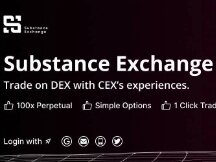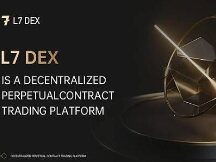Distinguish between DEX and CEX
Decentralized exchanges (DEXs) have grown in popularity due to the hype surrounding decentralized financial instruments (DeFi). Many cryptocurrency enthusiasts believe that the shared market share of exchanges may increase further in the future. Many cryptocurrency exchanges are now also developing diversity in their trading environment.
Since September 24, the National Development and Reform Commission, the central bank, etc. released reports to correct speculation in the mining and virtual currency market, and the crypto industry saw total decline. At the same time, in response to the interference regulations, various exchanges, organizations and agencies announced steps to implement the warning and removal rules for Chinese users.
After several platforms reported breaches, the DEX platform saw short-term results. At press time, the DEX sector was up 8.53% on average over the 24-hour period.Insiders say the shortening of the DEX after customs is due to some cryptocurrency enthusiasts turning to censorship-resistant DEX platforms for market trading, with for short-term users and operation Chains.

Decentralized Exchange (DEX) and Centralized Exchange (CEX) have worked together for many years. Although DEX has not reached the level of enterprise integration for a long time, it remains in an important place in the history of digital value. Especially during the DeFi hype, DEX Uniswap outperformed the day trading phase of cryptocurrency giant Coinbase.
But why are there two types of exchanges and what is the difference between them?
P1
History of Cryptocurrency Trading

Before clarifying the differences between CEX and DEX, it is worth backtracking.In fact, digital currency and token trading as we know it today is only a few years old.A lot has happened since the "genesis block" of Bitcoin (BTC) was mined in early 2009.
Satoshi Nakamoto sent Hal Finney his first contract. In 2009, the new legislature set the price at 1 BTC for the first time as a central authority, a year after the opening of the first bitcoin exchange, Mt.Gox, and in 2014, Mt.Gox established the worst data theft to date in crypto history. . . As a result, the hackers stole 744,000 BTC and the exchange was lost.
During this time, Coinbase has gained a reputation and is now one of the largest exchanges in the world. As an American medium of exchange, Coinbase maintains the cryptocurrency market and provides an easy-to-use trading platform with an integrated wallet and specialized exchanges.
Since then, other exchanges have opened up as interest in digital advantages has grown. Most of these exchanges are centralized,With the advent of Binance, Huobi, OKEx, Bitfinex, etc., an exchange model has developed.
For a long time, small exchanges had nowhere to go.With the success of the financial services sector, exchanges such as Uniswap, Sushiswap, Compound and Curve Finance have started to gain popularity.
P2
What is the difference between CEX and DEX?

1. CEX - Centralized Exchange
Currently, the cryptocurrency industry is led by CEXs such as Binance, Huobi, and OKEx. Trading procedures in CEX are similar to those of a bank, and users convert their assets into exchanges, receive approval from the exchange to achieve exchange rates, and finally return their assets to their wallets.Opening an account on an intermediary exchange requires KYC authentication, for example uploading personal data such as an ID.
Centralized exchanges like Binance, CEX.io, Kraken or OKEx have their own ledgers. All commands modified by the user are recorded and recognized. To guarantee authenticity, data is exchanged internally via specialized servers and centralized security procedures.
Typically, CEXs operate under scrutiny and have privacy policies in place. At the same time, intermediaries have been involved with fraudsters to comply with laws used to protect financial markets.
Xiaobai users especially like this type of exchange.The middle model provides a platform for consumers to purchase and manage digital rewards with exceptional ease.Market volume on FX is usually higher than on DEXs. Indeed, the exchange is so fast because the nodes in the network do not need to be updated over time.
Behind CEX is a trading company. In order to create a good customer experience, these companies usually provide extensive support services. They also offer a variety of trading methods, including intermediary exchanges that allow you to buy cryptocurrencies with fiat currencies and often charge a fixed price when trading.
2. DEX - Decentralized Exchange
Decentralized exchanges play an important role in intermediary exchanges, but the exchange process can be very simple.Remove the KYC and the "send" and "delete" steps (these two steps are only required for CEX as usual).
Users use their address (request on DEX exchange or carry their wallet, but the user has their own private key) to trade with the DEX address smart contract. Users still have addresses and keys, and they have all the treasure in their hands.
The difference between mediums is that all of these functions are decentralized. vigor,DEX tracks the integrity of blockchain applications (DApps) instead of home servers and its own IT infrastructure. The DEX is not based on a single ecosystem, does not rely on exchange, and allows rapid exchange of cryptocurrencies across multiple blockchains.
P3
Advantages and disadvantages of DEX and CEX

Centralized and decentralized exchanges make the difference. Due to this difference, both types of exchanges have certain advantages and disadvantages.
1. Benefits of DEX
Compared to CEX, DEX is generallyboth good:
* Anonymous
Anonymity is a major reason for trading on the DEX. No authentication process, no KYC and no personal data is sent to the server. In most cases, only the private blockchain address can start a business, and there is no exchange of personal information between the exchange and the organization.
* Security
DEXs typically exchange large amounts of trading data at low cost through a combination of servers. This greatly reduces the risk of hacking and eliminates the possibility of loss due to server downtime.Decentralized exchanges exist on computer networks, which makes it difficult to attack decentralized exchanges. There is no entry or failure indicator. This makes DEX more secure.
2. The disadvantages of DEX
The benefits of trading are many.Not all:
* How much
Trading on the exchange rate is generally slower than on the average exchange rate (according to the DEX exchange). Any changes in the DEX must be identified by miners.Decentralized exchanges are not suitable for fast traders who need to react to short-term market changes.
* Low liquidity
High liquidity is the key to successful trading. Liquid exchanges are often one of the most popular trading facilities. The new exchange concept means that there are fewer traders than CEX. As a result, liquidity could decrease.
* Restricted Features
DEX capacity is still limited. Additionally, the user interface is often confusing for beginners. Many traders cannot use restricted orders, margin trading or stop losses.
3. The benefits of CEX
The exchange's basic user interface is easy to understand even for beginners, allows quick internalization of procedures and procedures, and users can easily and conveniently access their trading options.
CEX is very liquid due to its high market capitalization. Exchanges can meet their payment obligations quickly and easily. The depth of trading in the medium allows many people to buy and sell orders to ensure a reliable trading environment.
CEX is on an individual and medium infrastructure, close in timequick dealIt's possible Exchange algorithms can perform thousands of commands per second, allowing the exchange to respond to the exchange without waiting.
And the best exchanges in the business have a wide range of digital advantages and have tons of trading partners. At the same time, it is also possible to deposit and withdraw money using fiat currency.
4. The disadvantages of CEX
Users keep their crypto assets on the exchange and not under their control as the exchange base wallets are integrated.Ownership of the private key is in the hands of the exchange, and there is a risk that the private key and the user's digital assets will be completely lost if the exchange goes down or against.Although it didn't, it cost millions of dollars.
Other conflict issues:Intermediaries are governed by administrators, third party service providers, and laws and regulations.In order to protect financial transactions, employees must collect a lot of data (KYC) about their customers.This constantly goes against the fundamental concept of cryptocurrencies.
P4
CEX VS DEX Eternal battle with no winner

As mentioned above,Both types of exchanges have their pros and cons.
The whole decentralized nature of DEX was in line with the simple ideas of Satoshi Nakamoto when creating Bitcoin. However, for many beginners, CEX is a perfect fit for their industry.
Now, many CEXs are realizing the benefits of exchange distribution and are now developing their own exchange or DEX functionality integrated into their systems.It will be possible to combine two changes in the interface in the future.

Scan QR code with WeChat































